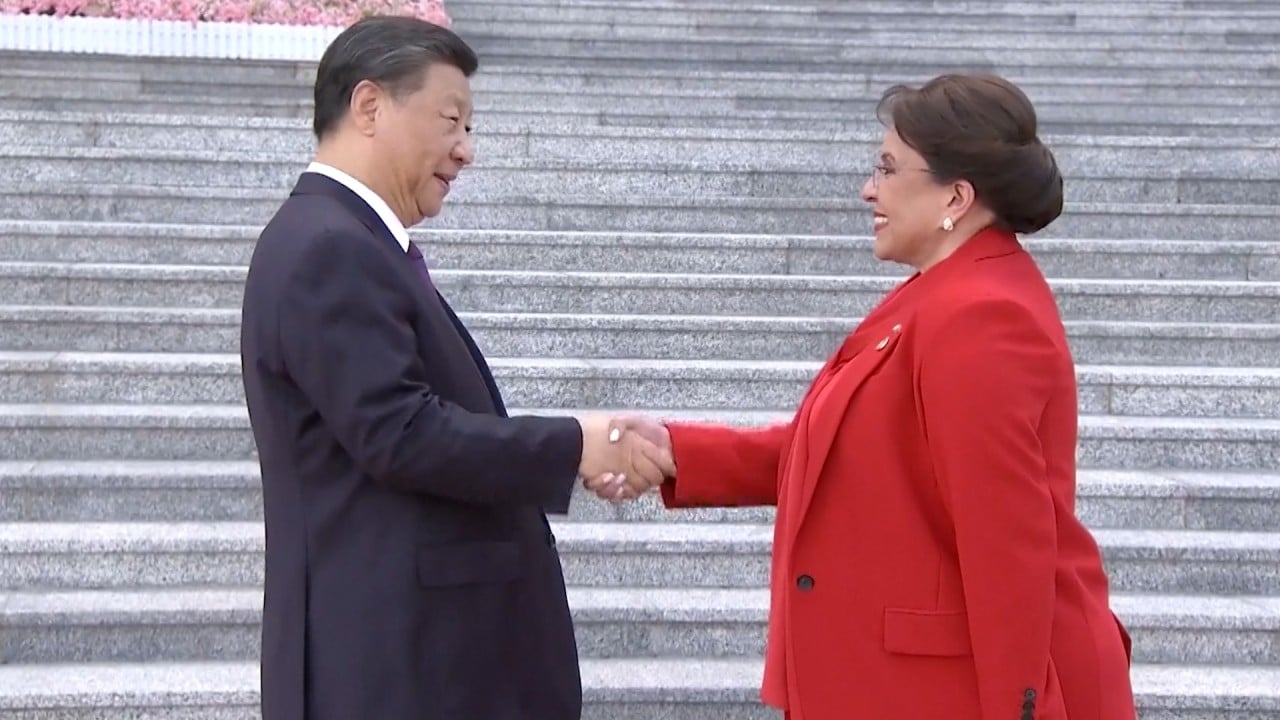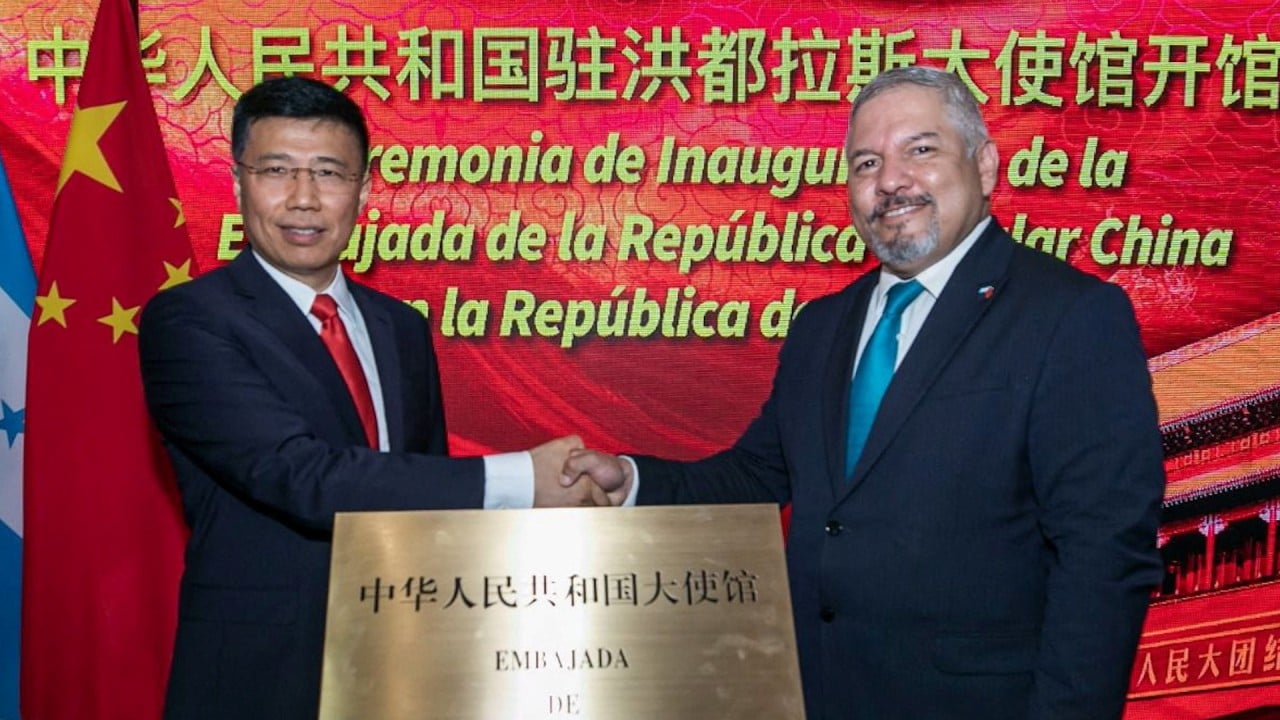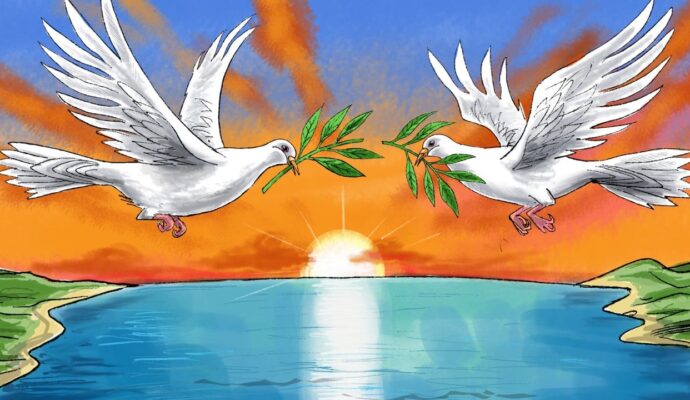They also indicated that formal talks towards a free-trade agreement would begin “as soon as possible”.
Honduras is just the latest country to switch recognition in the long-standing diplomatic tussle between Taiwan and Beijing – which sees the self-ruled island as a part of its territory. Most countries, including the United States, do not recognise Taiwan as an independent state. Washington, however, opposes any attempt to take the island by force.
Beijing’s campaign to pull Taipei’s few remaining diplomatic allies from its orbit has only ramped up since 2016 following the election of Taiwanese President Tsai Ing-wen and her independence-leaning Democratic Progressive Party.
Since then, nine countries have abandoned Taipei, leaving it with just 13 formal allies.
With the exception of the Holy See and the African state of eSwatini, Taiwan’s remaining diplomatic allies are a handful of countries in Latin America and four Pacific island states.
Among them are the Latin American countries of Guatemala, Belize and Paraguay, which like Honduras, have export-oriented economies and stand to benefit the most from formal trade relations with China, according to Rasheed Griffith, founder and CEO of the Caribbean Progress Studies Institute.
Bananas and coffee beans are among the key exports of Belize and Guatemala, respectively, and just one day after Castro’s meeting with Xi, China announced it was approving the import of the commodities from Nicaragua.
China is also the world’s largest importer of soybeans, Paraguay’s key crop.
Griffiths said that even Caribbean states such as St Kitts and Nevis and Saint Lucia, which depend on tourism and services rather than exports, stood to gain from an inflow of cheaper Chinese goods.
“In my opinion the economic calculation will become too overwhelming,” Griffith said. “It is very unlikely that Taiwan will have any formal allies in the region in the next five years.”
But Beijing’s economic enticements might not be as effective in the Pacific.
“It’s standard procedure for the PRC government to signal to governments that flip their recognition from Taipei to Beijing that they will get rewarded with VIP treatment,” Denny Roy, a senior fellow at the East-West Centre in Hawaii, said, referring to the People’s Republic of China.
“But in some cases this isn’t enough.”
The Marshall Islands and Palau in particular have long been strong allies with the United States.
Both have signed onto the US’ Compact of Free Association, with Palau extending its membership last month. Inclusion comes with a number of benefits, including financial and development support, in exchange for US use of their land and waters for military and national security purposes.
“If staying on the good side of the USA is important, recognising Taipei rather than Beijing is an advantage,” Roy said.



